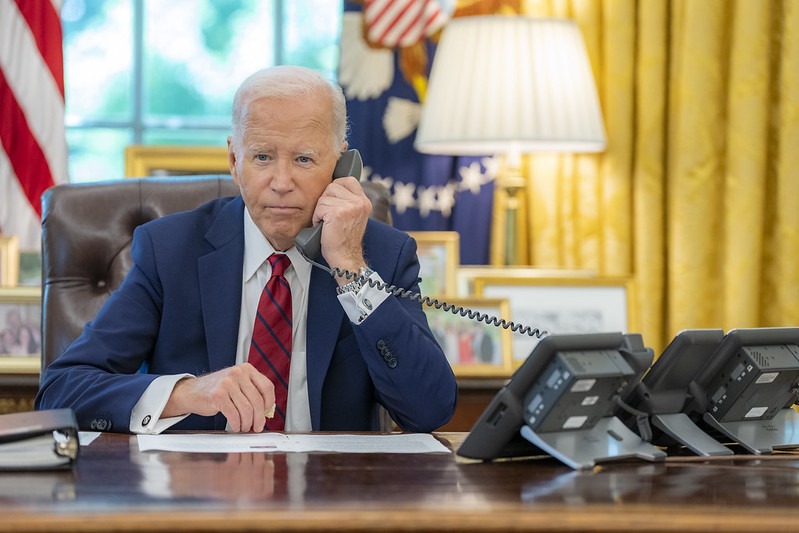House Minority Leader Hakeem Jeffries (D-NY) secured a private meeting with President Joe Biden on Thursday, the same day as Biden’s high-profile NATO news conference, underscoring the urgency of the internal crisis within the Democratic Party. These discussions have unveiled significant anxiety among Democrats regarding the party’s direction and Biden’s leadership, particularly in light of his recent national performances.
Adding to the party’s challenges, Biden’s reelection campaign now faces a major financial rebellion. Prominent Democratic donors have expressed their dissatisfaction by pausing approximately $90 million in pledges to the leading pro-Biden super PAC, Future Forward.
According to insiders who spoke to The New York Times, this includes several eight-figure commitments. These donors, who chose to remain anonymous due to the sensitive nature of the issue, have voiced their concerns following Biden’s perceived lackluster debate performance at the end of June.
The Times reported:
Future Forward declined to comment on any conversations with donors or the amounts of any pledged money being withheld. A Future Forward adviser would say only that the group expected contributors who had paused donations to return once the current uncertainty about the ticket was resolved.
Separately, one donor to the group described being approached multiple times by Future Forward since the debate for a contribution, but said he and his friends had been “holding off.”
The two people briefed on the frozen pledges declined to say which individual donors were pulling back promised checks, which were estimated to total around or above $90 million. It was not clear how much of the pledged money was earmarked for Future Forward’s super PAC versus its nonprofit arm, which has also been running advertising in key battleground states. The super PAC has been shying away from making major strategic decisions until it gets clarity on who will be atop the ticket, according to a separate person close to the group.
The cash freeze comes as some advisers around Mr. Biden are discussing how to persuade the president to exit the race, and as his campaign has begun to test Vice President Kamala Harris in head-to-head surveys of voters against former President Donald J. Trump. The number of congressional Democrats calling for Mr. Biden to step aside is growing by the day.
Biden’s campaign is facing a challenging July fundraising period as more major donors express doubts about his ability to secure a victory in November. Despite weeks of internal turmoil within his party, Biden’s NATO press conference lasted nearly an hour. While he made a few minor errors, his performance was notably better than during the June 27th presidential debate. Although the press conference did not significantly exacerbate Democrats’ concerns about his leadership capabilities, it also did not quell the growing calls on Friday for him to step aside from the race.
A recent survey by the Pew Research Center highlights a significant shift in the political leanings of young Americans, showing an increasing trend towards the Republican Party. The report, which analyzed data from 1994 to 2023, examined how changes in demographic profiles and partisan coalitions influence the political landscape in the United States.
According to a recent Pew Research Center report, there has been a noteworthy shift in the political orientation of young U.S. voters, with an increasing number now aligning with the Republican Party. Traditionally, voter party identification has been influenced by factors such as gender, race, ethnicity, and religious affiliation. While these factors continue to play a significant role, the new trend among younger voters indicates a changing political landscape, suggesting that the GOP is gaining ground with this demographic.
The Pew Research Center’s latest findings indicate a significant shift in political alignment among young voters (ages 18 to 24), who increasingly identify with or lean towards the Republican Party. This trend marks a notable departure from previous patterns, where this demographic traditionally supported the Democratic Party, often motivated by progressive views on social issues and a desire for change.



